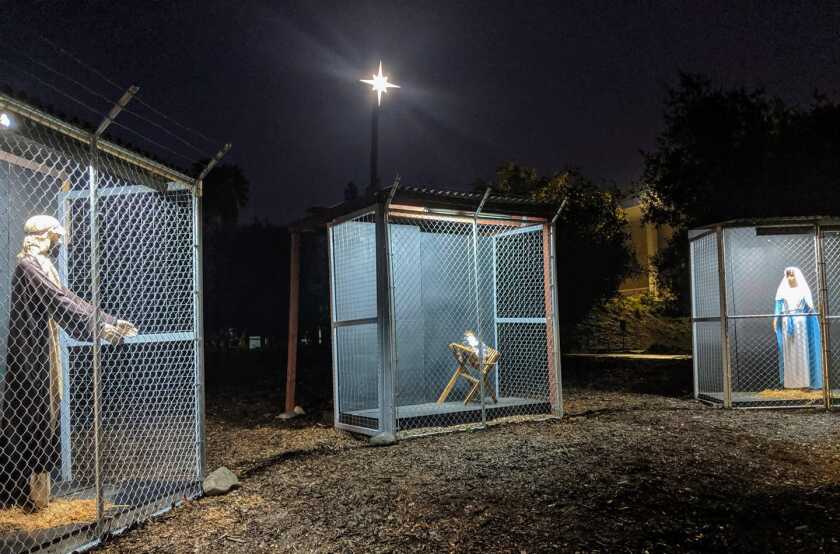Before there were theologies for that, there were stories and around the stories there came to be festivity. The stories were not histories or documentaries. They were tales told about a birth by people who had to see everything through the other end of life, the death in which this Jesus triumphed. And so they told of a woman from Galilee named Mary who (as the poet Gerard Manley Hopkins wrote)
Gave God's infinity
Dwindled to infancy
Welcome in womb and breast,
Birth, milk, and all the rest...
There was this birth. There was the bursting of waters, blood, pushing, cutting cord, fondly wrapping. There was parting at the beginning, as at every beginning. And not only, the stories tell, the blood of birth spilled, but other blood, the world's most innocent blood. It is a true story being told for that, we know, is the way it goes, the way it went, the way it will go: We've all known kings like Herod. It's practically a prerequisite for the job: "Sure, somebody's going to get hurt, a few lives lost, but isn't it worth it?" It comes with the territory.
But then consider how the medieval drama "The Play of Herod" ends: the escape to Egypt, the hasty retreat of the magi, then the intrusion of the military into the village. The children are murdered and Rachel--the biblical mother--weeps and laments. A comforter is sent by God, but she refuses to be comforted because her children are no more. But this is not the end of the play. Did they somehow invent a happy ending? Nothing of the kind. The ending is not happy, it is a great mystery. For there is a Te Deum sung: "We praise you, God, we confess you as Lord." The greatest chant of praise. This is sung by Mary and Joseph, processing through the audience, but they are joined in their song and procession by the animals and the angels, by the shepherds, by the lamenting Rachel and the parents of Bethlehem, and they are joined by the soldiers and their victims and by Herod. Knowing that (Hopkins again)
we are wound
With mercy round and round. . . .
they all, incarnate God and all creation, even death, tyrants and martyrs, all process and all sing praise. And we sing too, and find ourselves in the procession.
Today we can't imagine it. We take our Christmas with lots of sugar. And take it in a day. Though we've been baptized into his death, we have little time for or patience with how that death is told at Christmas, a death that confuses lament and praise forever. And no wonder we are careful to keep Christmas at an arm's length. What is Herod in these times?"
O the night of the weeping children!
O the night of the chidden branded for death!
Sleep may not enter here
Yesterday Mother still drew
Sleep toward them like a white moon....
Now blows the wind of dying,
Blows the shaft over the hair
That no one will comb again.
Not about Bethlehem but about Auschwitz. Or maybe about anyplace the world's Herod's (include us in) have wandered. From this year's news: how many places, how many innocents?
Where is that mystery in our Christmastime, the mystery that is victorious cross? It is right there in the stories we tell, the carols we sing, the gifts we give and cards we write, the time we take to process through the dozen days from Christmas to Epiphany, the many ways we have to whisper to one another that the days are numbered now for the world's business-as-usual: somehow, some way, we are going to join hands and take the procession all over this earth.
--Gabe Huck

As I was reading that I thought, that's the best piece on the Epiphany I've read. When I got to the bottom and saw Gabe Huck I looked him up and remembered him being fired by Cardinal Francis George after he'd been one of the main, officially recognized publishers of the Vatican II liturgy in the United States, clearly a milestone in the JPII era retreat back into 19th century neo-medievalism.
ReplyDeleteFrom the National Catholic Reporter at the time:
Huck said the cardinal indicated to him that he wants to work more closely with the Bishops’ Committee on the Liturgy, whose present staff Huck finds excessively compliant with Vatican directives. Huck faulted the staff for “constantly shuttling back and forth from Rome to Washington, playing an active role in the whole series of retro measures aimed at putting an end to the liturgical renewal begun by Vatican II, and involving itself with the circle of Roman authorities only too eager to hear the complaints of reactionaries in this country and to translate those complaints into new legislation or into heavy-handed changes.”
He was even more outspoken in a speech last fall when the Federation of Diocesan Liturgical Consultants presented [Liturgy Training Publications] with the Msgr. Frederick McManus Award for leadership in pastoral liturgy.
“We are in the midst of a whirlwind of the line-drawers and the literalists,” Huck declared, “the successors of those fearful curial folk who never wanted a council in the first place.” He referred to the Second Vatican Council (1963-65), the impetus for widespread liturgical renewal in the church.
Huck regretted that “the Catholic genius for sacramentality and metaphor” is being replaced by “the Catholic weakness for power and for the literal.”
Francis George was the guy JPII replaced the great Cardinal Joseph Bernadin with.